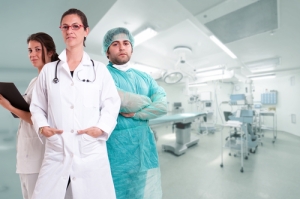After more than ten years of rigorous medical education, Angela Gucwa is about to realize a lifelong dream. The vascular surgery fellow will be completing her fellowship in the Greenville Health System in just a few months, and looks forward to completing her vascular surgery boards so that she can begin practicing independently.

“It feels surreal,” Angela Gucwa acknowledged. “I started medical school in 2002, then residency in 2006, and it’s only in 2014 that I will be truly headed out on my own as a surgeon.”
Angela Gucwa completed her undergraduate coursework at the University of Georgia in Athens, where she graduated magna cum laude in 2002 with a degree in biology. By then she had decided on surgery as a career. After UGA Angela Gucwa went on to Medical College of Georgia. “I was pre-med in undergrad,” Angela Gucwa recalled, “which meant a lot of time in the lab and not a lot of fun, but the hours spent over organic chemistry problem sets was well worth it. I’m a surgeon now, and that’s always been my goal.”
Before coming to the Greenville Health System, Angela Gucwa was a resident at the Medical College of Georgia. Angela Gucwa completed both a general surgery residency and spent time as a research resident. “I found research really rewarding,” said Angela Gucwa. “I published some interesting papers as a researcher – even the ones on carbohydrates – and doing research gave me a new approach to surgery. It made me more interested in the process, rather than just the results.”







